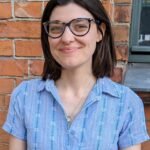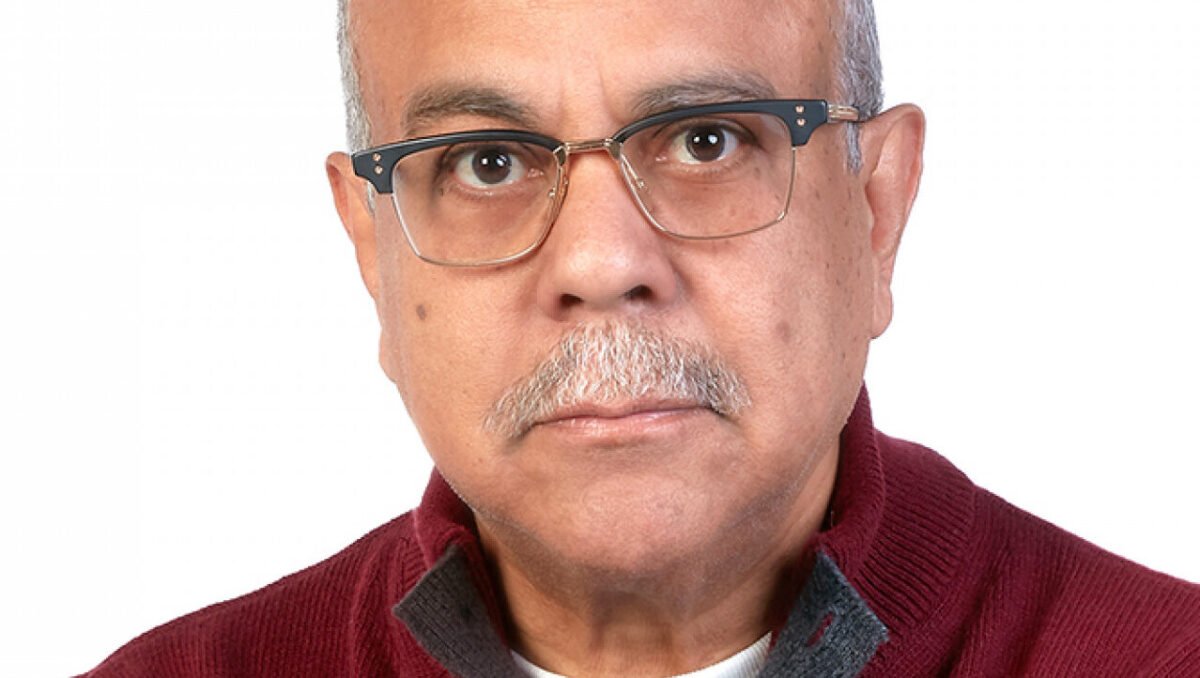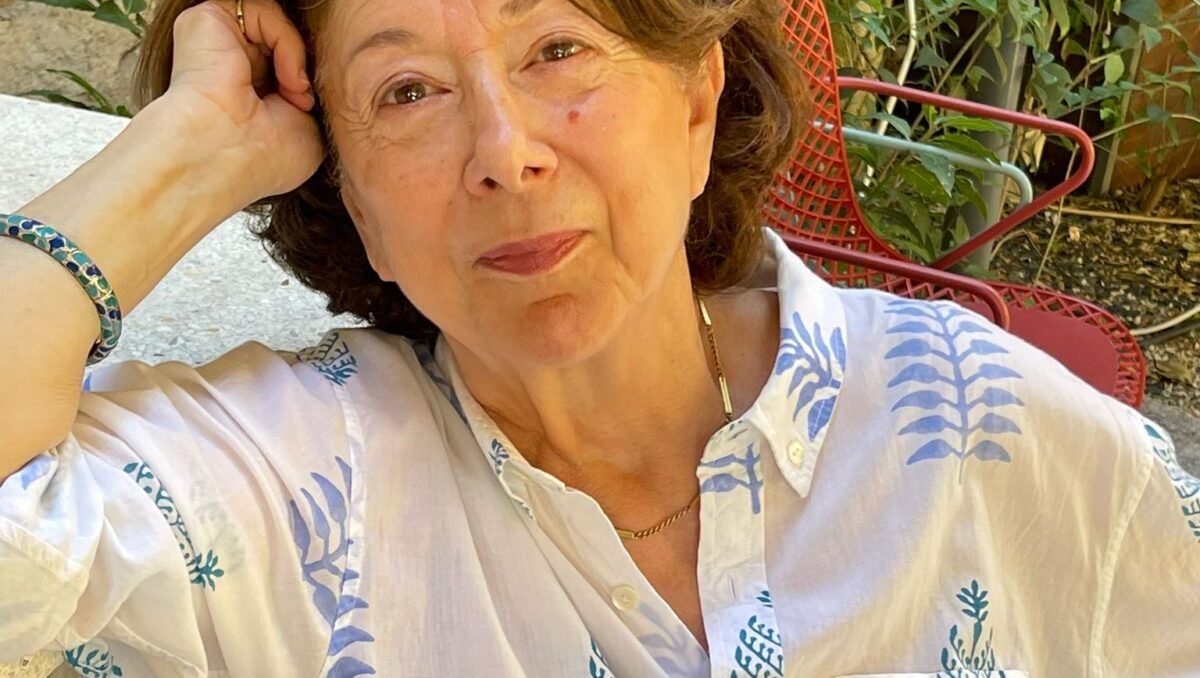URGENT: NEWS OF THE DEATH OF HIBA ABU NADA by João Melo, trans. G. Holleran
Excuse my urgency, oh right-thinking beings
especially you translucent
and self-referential poets,
but one of our sisters,
the Palestinian poet Hiba Abu Nada,
has just died in Gaza under the shrapnel of a benevolent bomb,
sent by another God,
different from the one she spoke with
every day.
I hesitated to convey this fateful news
so hastily. Perhaps I should wait
for the leaden grey smoke from the bomb that killed her to dissipate,
while she, surely,
scrutinized the sky for a sliver of light and
maybe even
the last birds.
Or, more convenient yet
it’d be better to say nothing,
until today’s hegemonic oracles,
like all oracles,
circulate an official statement
denying it as usual
without any doubts
or uncomfortable questions.
But when I read
the last words of Hiba Abu Nada before she died,
I was moved to spread this news,
before her banner could be censored
by those who defend selective liberty:
“If we die, know that we are content and steadfast,
and convey on our behalf that we are people of truth!”
 Grace Holleran translates literature from Portuguese to English. A PhD candidate in Luso-Afro-Brazilian Studies & Theory at the University of Massachusetts Dartmouth, Grace holds a Distinguished Doctoral Fellowship with the Center for Portuguese Studies & Culture and Tagus Press. Grace’s research, which has been supported by a FLAD Portuguese Archives Grant, deals with translation and activism in the early Portuguese lesbian press. An editor of Barricade: A Journal of Antifascism & Translation, Grace’s translations of Brazilian, Portuguese, and Angolan authors have been published in Brittle Paper, Gávea-Brown, The Shoutflower, and others.
Grace Holleran translates literature from Portuguese to English. A PhD candidate in Luso-Afro-Brazilian Studies & Theory at the University of Massachusetts Dartmouth, Grace holds a Distinguished Doctoral Fellowship with the Center for Portuguese Studies & Culture and Tagus Press. Grace’s research, which has been supported by a FLAD Portuguese Archives Grant, deals with translation and activism in the early Portuguese lesbian press. An editor of Barricade: A Journal of Antifascism & Translation, Grace’s translations of Brazilian, Portuguese, and Angolan authors have been published in Brittle Paper, Gávea-Brown, The Shoutflower, and others.
- Published in Featured Poetry, Poetry, Translation
FOUR POEMS by Olivia Elias, trans. Jérémy Victor Robert
Day 21, Words Are Too Poor, October 28, 2023
words are too poor but I have only them
my only wealth
empty my hands & so great the sufferings
here again I press my arms around my chest
here again I get into this old habit of covering the page with little
squares filled with black ink
the little squares of our erasure
/
I write what I see said Etel Adnan* who knew a lot about
mountains’ strength as well as Catastrophe
I also know the power of this Mount facing the sea
Carmel of my very early days Mount Fuji of absence
& denial around which I gravitate above it the
black crows of desolation
as I know all about our Apocalypse which keeps on repeating
repeating the earth turning on its axis the sun that veils its face
/
here’s what I see
the madness of the overarmed Occupying State
crushing bodies & souls live on screens at least until
night falls a night of the end of the world only
pierced by ballistic flashes
in Sabra & Shatila the spotlights
. illuminated the massacre’s scene
today in this Mediterranean Strip of sand
. total darkness shields Horror
the sky explodes in a thousand pieces amongst
monstrous mushrooms of black smoke the time to
count one two three towers collapse one
after the other like bowling pins their inhabitants
inside then get into action the steel monsters
flattening the landscape they call it
(translation: converting this ghetto sealed off on all sides
into a 21st-century Ground Zero)
everyone wondering When will my time come?
& parents writing their children’s name on their small wrists
for identification (just in case)
/
no water no food no fuel & electricity & no medicine
decided the Annexationist Government’s Chief
let’s finish this once & for all & forever they shout
relying on the unconditional support of
their powerful Allies the ones primarily responsible
for our fate by writing it off on the bloody chessboard
of their best interests
as if their contribution to our erasure redeemed their crimes
Hear Ye Hear Ye
proclaims America’s great Chief, waving his veto-rattle
Absolute safety for the Conquerors
Hear Ye Hear Ye
chorus the mighty Allies
/
Gaza / 400 square kilometers/not a single safe place /2.3 million people /half of them children / hungry /thirsty/injured /desperately searching for missing family members dying under the rubble
& Death the big winner
/
they should know that souls cannot
be imprisoned no matter how tight the rope
around the neck & how strong
the acid rains & firestorms
One day, however, one day will come the color of orange/
/a day like a bird on the highest branch**
where we will sit
in the place left empty
in our name
in the great human House
————
*Etel Adnan, “I write what I see,” in Journey to Mount Tamalpais (Sausalito: Post-Apollo Press, 1986; Brooklyn: Litmus Press, 2021).
**“One Day, However, One Day,” from Louis Aragon’s homage in Le Fou d’Elsa (1963) to Federico García Lorca, who was murdered, in August 1936, by Franco’s militias.
DAY 74, THERE WILL ALWAYS BE POETS, December 20, 2023
instability a general rule
it seems a new ocean’s on the verge
of emerging in
Africa
& floating between
here
&
there
could affect not only people or land
but also the seasons I experienced it
of fall I didn’t see a single thing
this year the acacia’s
color even changed without
my noticing
one morning looking through
the window I realized
it was there
naked
at its feet a carpet of yellow
leaves littered the ground
nothing to keep it warm
exposed
to the cold icy rain missiles
& here I was & still I am
glued to the screen
startled by every explosion
of the red-little-ball
clinging to the glittering
garlands
as soon as one of the
flesh-eating-red-balls hits
the ground a sheaf of fire
bursts followed
by a huge black smoke
cloud
then
screams
cries
panic
agony
day & night (even
more so at night) keeps on
going the hypnotic
ballet
today
Day 74
74 days of this
will spring come back
or only a long winter
of ignominy cold hunger
history will remember
there will always be poets
to tell the martyrdom
of the Ghetto People
NOTE: An earlier version of this translation appeared on 128 Lit website, December 28, 2023.
HEAR YE, HEAR YE!
At regular intervals shaking his rattle carved with the word veto the Grand Chief of America takes the floor for an urbi et orbi statement
With the utmost firmness
broadcast on a loop
in newspapers on screens
around the world
withwithwithwithwithwithwith
thethethethethethethe
utmostutmostutmostutmostutmost
utmostutmost
FIR/MNESS
like
FER/OCITY
growing
exponentially
utmostutmostutmostutmosT
exceptionallyFirm
FIR/MNESS
FIRE/MESS
Iron balls blazing
in the sky
black & read whirls
it’s raining
black ashes
east bank not west
with the utmost
firmness
We support the Conquerors’
Right to Security
COLIN POWELL. GUERNICA. SCULPTURE
1
The devil is in the detail. Colin Powell–former Chairman of the Joint Chiefs of Staff, Secretary of State to the 43rd President of the United States, George W. Bush, between 2001 and 2005–was said to have placed great importance on this. Unfortunately for him and the legacy he leaves to history, he broke that rule on one memorable occasion
It was on February 5, 2003, when he called for a military crusade against Iraq on the podium of the United Nations, based on false evidence of weapons of mass destruction. His effort resulted in the very thing it was supposed to prevent–the deaths of hundreds/hundreds of thousands of Iraqis–& plunged the country into widespread chaos, which is still unfolding today
That day, UN officials covered with a blue veil a tapestry hanging at the entrance of the Security Council representing Guernica, the monumental work painted by Picasso at the request of the Republican government during the Spanish Civil War. Twenty-seven square meters commemorating the stormy & total destruction of the small town of the same name by the German & Italian air force, on April 26, 1937
2
In March 2021, the tapestry was returned to the Rockefeller family who had loaned it for 35 years & wanted it back. Has it been replaced? With what work? I don’t know, but I’ve got an idea. Let’s offer a cubist sculpture/assemblage of 550 stones extracted from our lands on which Settlers, protected by militias/soldiers & courts, are having a great time
Upon each of these stones
that capture the light so
beautifully
is an inscription: the name of
a village
from yesterday and today
that was
razed/ablaze
May a blue veil cover it when the Guardians of the ghetto & the bantustans take the floor
 JÉRÉMY VICTOR ROBERT is a translator between English and French who works and lives in his native Réunion Island. He published French translations of Sarah Riggs’s Murmurations (APIC, 2021, with Marie Borel), Donna Stonecipher’s Model City (joca seria, 2020), and Etel Adnan’s Sea & Fog (L’Attente, 2015). He recently translated Bhion Achimba’s poem, “a sonnet: a slaughter field,” which was published on Poezibao’s website, and Michael Palmer’s Little Elegies for Sister Satan, excerpts of which were posted online by Revue Catastrophes. Together with Sarah Riggs, he translated Olivia Elias’ Your Name, Palestine (World Poetry Books, 2023).
JÉRÉMY VICTOR ROBERT is a translator between English and French who works and lives in his native Réunion Island. He published French translations of Sarah Riggs’s Murmurations (APIC, 2021, with Marie Borel), Donna Stonecipher’s Model City (joca seria, 2020), and Etel Adnan’s Sea & Fog (L’Attente, 2015). He recently translated Bhion Achimba’s poem, “a sonnet: a slaughter field,” which was published on Poezibao’s website, and Michael Palmer’s Little Elegies for Sister Satan, excerpts of which were posted online by Revue Catastrophes. Together with Sarah Riggs, he translated Olivia Elias’ Your Name, Palestine (World Poetry Books, 2023).
- Published in Poetry, Translation


